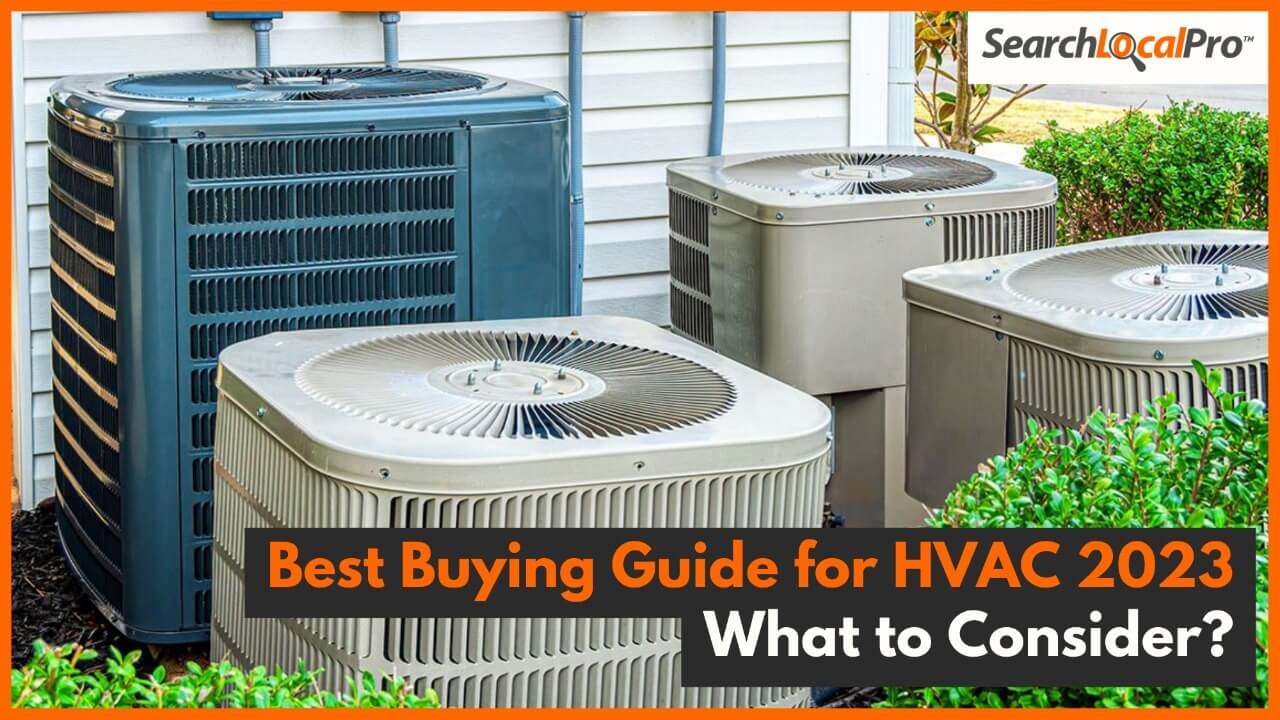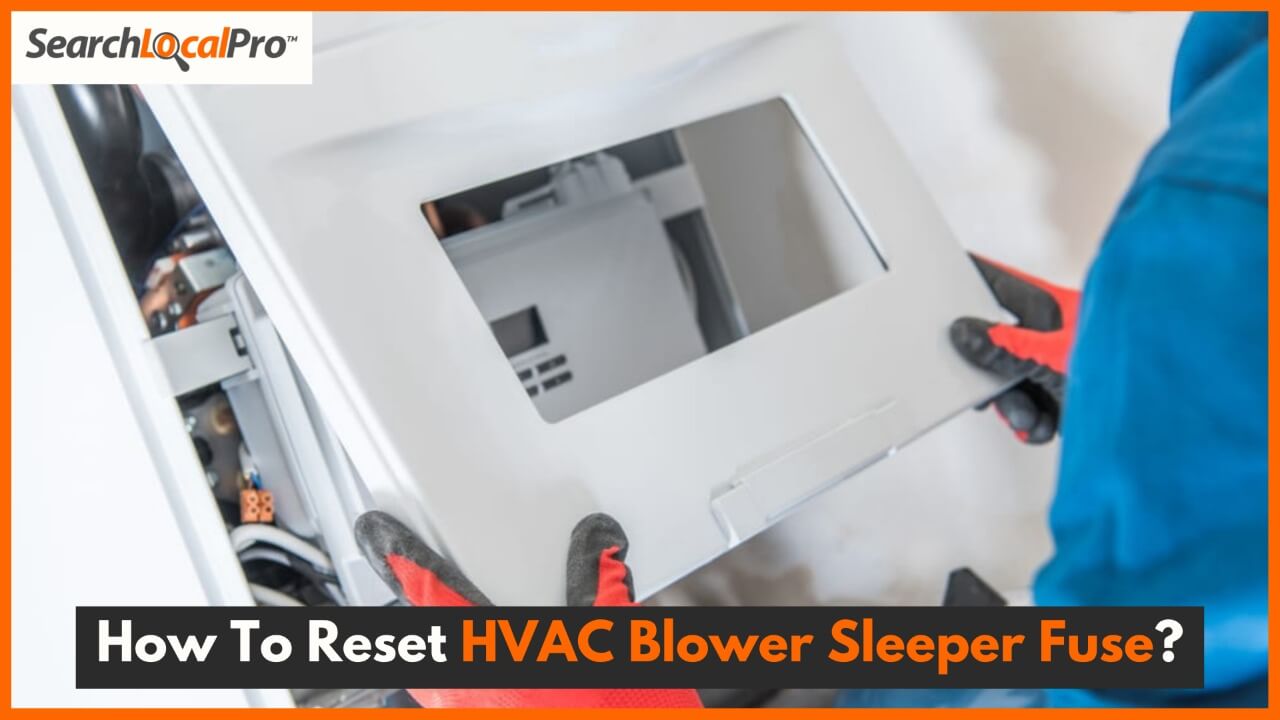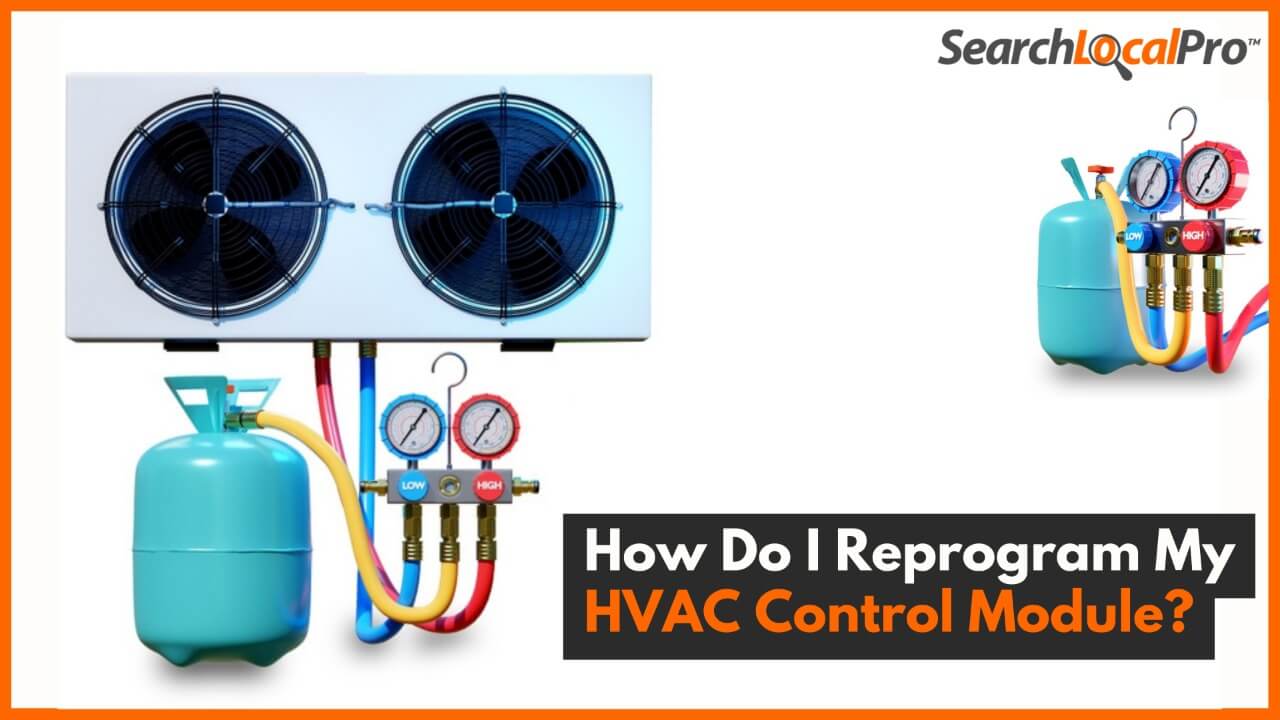Whether you are installing a new HVAC unit for your home or office building, knowing the basic but essential things is important.
With a handful of information about HVAC systems, their importance, factors, types, and budget can help you choose the best unit.
With that said, we have compiled a comprehensive and best buying guide for HVAC systems 2023.
So you can find the best fit for your needs without emptying your pockets on the wrong HVAC units.
Confused about when to replace your commercial HVAC system? Find here.
HVAC System: A Quick Rundown
HVAC system, abbreviated for Heating, Ventilation, and Air Conditioning, is used for heating and cooling air according to the environment’s needs.
Comprising multiple indoor and outdoor complex components, an HVAC maintains the temperature environment and makes the air clean from contamination, dust, and germs.
The concept of installing HVAC systems in both commercial and domestic sectors is becoming popular, whether you consider comfort or climatic conditions as a cause.
HVAC System Importance
Having an HVAC system in this era has become more than a matter of luxury. One cannot simply lead an everyday and peaceful life without it.
Whether you consider the growing population growth or global warming, Earth’s climatic conditions are growing to extremities, increasing the need for an HVAC system to have moderate weather for survival.
The HVAC system, a basic human need, is installed in schools, hospitals, malls, offices, industries, restaurants, institutes, and halls everywhere.
Moreover, an HVAC system purifies the air by continuously circulating it through the filters, so that dust, germs, contamination, and other harmful particles are trapped.
In short, the essential functions of HVAC systems are Heating, Ventilation, and Air Conditioning.
And making an adequate temperature, as well as purification of air, are critical for leading a peaceful and healthy lifestyle.
Consequently, installing an HVAC system is the most effective option for achieving this goal.
What to Consider Before Finalizing an HVAC System for Your Building?
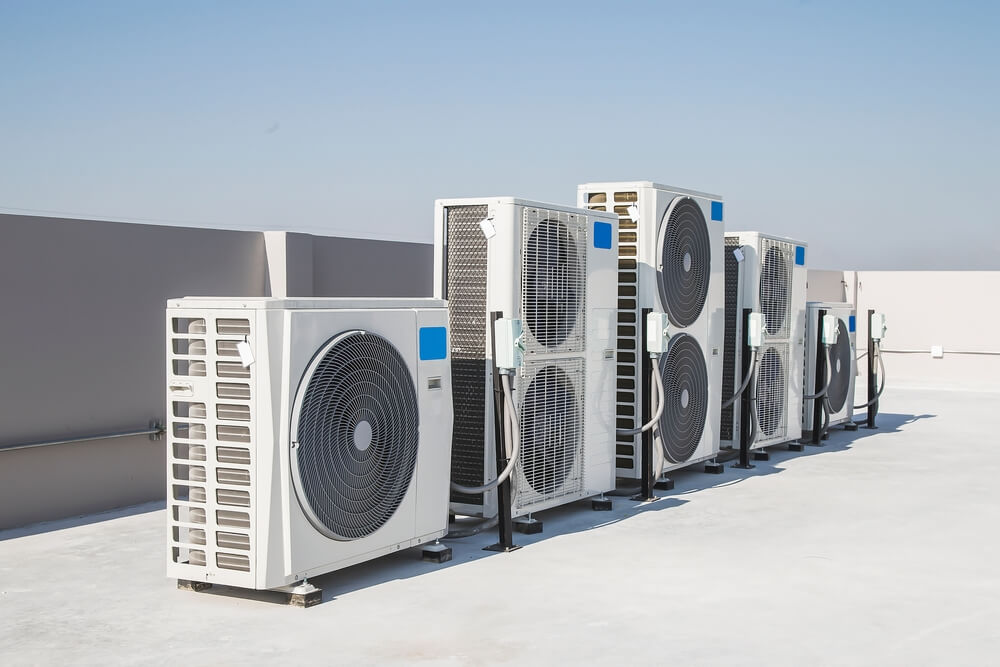
Undoubtedly, HVAC systems are one of the most complex electro-mechanical systems to such a typical extent. And for this reason, it is pretty expensive also.
From its installation by a certified HVAC technician to repairing, maintaining, and sometimes replacing its components can cost hundreds of dollars.
And you must not be planning to change your HVAC systems after every 1 to 2 years if it doesn’t fulfill your needs.
So, before getting into the types of HVAC systems and which one is suitable for your household or commercial building, we have enlisted a few of the aspects you must consider before taking any decision.
So, let’s get started!
Heating And Cooling Requirements:
Determining the heating and cooling requirements of your room is essential as the working capabilities of the HVAC systems’ components are different, and they might be damaged due to over-working or under-working to fulfill these requirements.
Humidity Maintenance:
An average humidity level should range between 24% to 50%, depending on the temperature and weather conditions.
The average humidity removal function, called condensation, occurs in cooling systems. However, the HVAC might malfunction if your location has increased moisture.
Pricing Factor:
An average HVAC system cost for a commercial or domestic sector can range between $4,000 and $20,000.
Moreover, the installation services charges of HVAC tech are separate. So, before making a final purchase, compare the pricing factors and features of the system with different retailers.
Outdoor Air Quality:
The air quality and environment are critical factors in choosing an HVAC system for your building. Suppose your location is in an industrialized location with high dust ratio. You need a system with strong furnace fans; otherwise, your fans will require frequent repair and replacements.
Size Of The System:
Before approaching the HVAC retailers, consulting a tech and determining the right size of the system, you need for your room is crucial as unsuitable-sized systems.
That can result in over-working or under-working of the system, leading to permanent damage and often repairing and replacement of components.
Types of HVAC System for Residential and Commercial Sectors
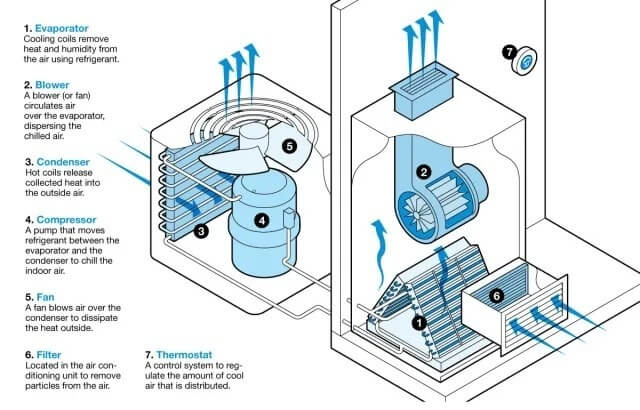
There are four categories of HVAC systems available for both the commercial and domestic sectors. Let’s discuss them one by one in detail so you can figure out the suitable one for you.
- Package system
- Split systems
- Hybrid system
- Ductless system
1. Package System:
In the package system, all the heating and cooling components of the HVAC system are packed in one metal unit. Evaporators, condensers, coils, motors, and every other part are compacted to save space and avoid long connecting coils and wires.
You might have noticed huge green or grey boxes on the roofs or placed on the cement slabs of the sides of the buildings. They are primarily suitable for single-story buildings.
2. Split System:
The split HVAC system is divided into two parts, an indoor component, and an outdoor component. The outdoor part contains a condenser and compressor, and the indoor part contains the air handling and evaporating components.
A long copper tube connects the indoor and outdoor parts of the system and moves the cold air into the indoor part to throw it in the room. These split systems are standard and suitable for buildings with large spaces or multiple stories.
3. Hybrid System:
A hybrid HVAC system, also known as a dual fuel system, is one of the advanced systems that can work on gas and electricity supply. They have gas supply settings and batteries installed.
It is one of the most expensive HVAC systems and is complex to install, maintain and repair. Hybrid systems are reliable, flexible, and suitable for massive projects like commercial buildings and offices.
4. Ductless System:
A ductless HVAC system is another indoor and outdoor system commonly used for cooling or heating separate small-sized rooms. Also known as mini-split HVAC systems, the indoor component is wall-mounted.
As shown by the name, it doesn’t need duct systems like traditional HVAC systems. They are moderately expensive, simple, quick to install, and effective in managing temperature.
How Do I Choose the Best Heating and Cooling System?
According to the reports of the United States Department of Energy, 48% of the energy consumption of a home is accountable for HVAC systems.
Therefore, getting the right system for your home, office, institute, or building is critical, as an ill-suited type will make your average electricity bill skyrocket.
Apart from considering the essential factors, as discussed before, here are a few characteristics you need to consider for the four types of HVAC systems. So, let’s start with the packaged system and jump to other types one by one.
Packaged HVAC System:
- It is best for small projects as it is completely compact and doesn’t take up a lot of space.
- It is usually placed on the roofs of the building or outside the building, but interior placement is also an option.
- Its heating power is not as effective as other HVAC options, so it is used in areas with cold atmospheres.
- They are suitable if the budget is low, as their installation, repair, and maintenance costs are comparatively low.
Split HVAC System:
- Split systems are best if your buildings have multiple stories and you want a separate HVAC system for each floor.
- They are suitable for buildings with large spaces as they are divided into big outdoor components and moderately-sized indoor components.
- Also, their heating system is large, having separate furnaces, fans, and other components, and they are placed in the basements and storage areas.
- They are quite customizable due to the division into two or three components.
Hybrid HVAC System:
- They are used on projects that are more elaborate and huge than the ones of split HVAC categories, like offices.
- They require high budgets as they are quite expensive, and their installation, repair, and maintenance costs are high.
- With access to electricity and gas, they are a viable option as their power bills are much lower than other options.
- They are suitable for areas with cold environments. However, they are also effective for warm areas with high electricity and gas bills.
Ductless HVAC System:
- They are the best option if your potential room is small, as they have separate outdoor and small indoor components.
- They are customizable and have great designs for your room’s interior.
- If the budget is neither high nor low, their installation, repair, and maintenance cost are moderately expensive.
- They provide complete control over the heating and cooling of the environment separately.
How Much Can an HVAC System Cost?
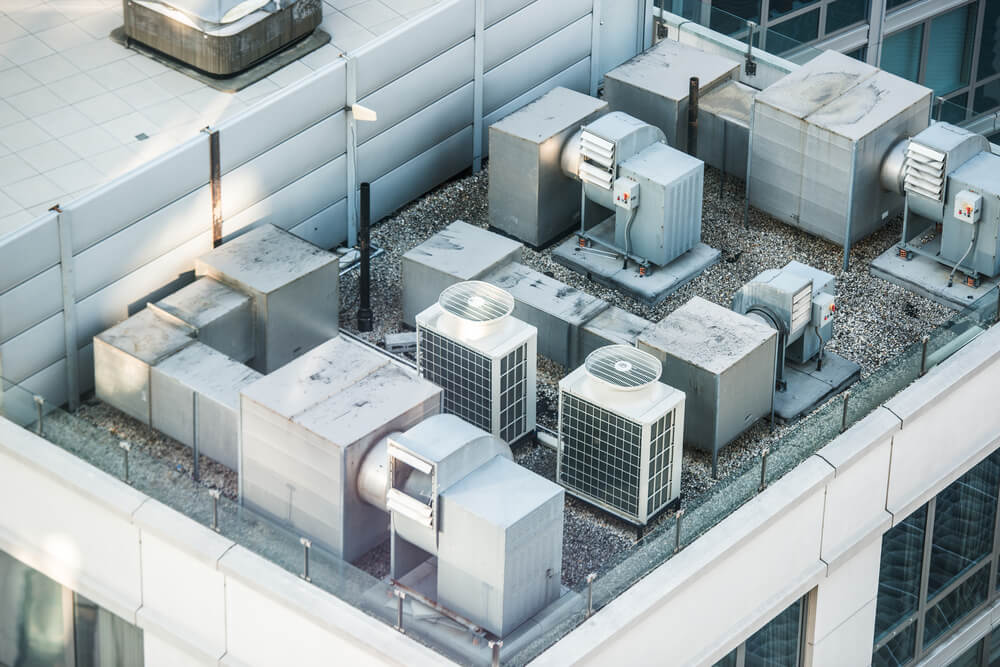
Starting from our first HVAC type, which is quite popular in the commercial sector,
a packaged HVAC unit can cost you between $2700 to $5000, depending upon size, working efficiency, retailing company, tax, and shipment.
Moreover, it doesn’t include the installation cost, as they are according to the HVAC technician.
While in the case of the split HVAC system, the cost can range between $3000 to $9000 without installation charges of HVAC tech.
The installation services can cost around $600 to $1000, depending on the setting, service duration, and other factors. Again, the prices may vary depending on the system’s size, tax, and shipment costs.
A hybrid HVAC system, working on gas and electricity supply, can cost you around $2500 to $10000. The additional costs are separate from other systems and can vary.
Lastly, the ductless HVAC system, also known as a mini-split HVAC system, is a bit expensive as its costs range between $3000 to $15000. The extensive pricing range of the ductless systems is due to the brands and zones.
If your room is big and requires high cooling requirements, the HVAC system cost will be high compared to small rooms requiring only one zone of HVAC systems.
How Long Does an HVAC System Lasts?
An HVAC system can last between 10 to 25 years, depending upon the company, type, functionality, and climatic conditions of its location.
And this average life span is effective with regular maintenance and repairing or replacing damaged or malfunctioning components.
Moreover, apart from small replacement small components, the HVAC system’s significant parts also have an average life span, and they need to be replaced separately.
Furnace fans have an average working ability of 18 years, while thermostats should be changed after every ten years of an HVAC system.
Therefore, if you are buying a second-hand HVAC system, ensure you know the proper life span of every significant component to avoid any complication, broken or malfunctioning, as one broken component can negatively impact your whole HVAC system.
An HVAC system is certainly not a cheap and easily replaceable investment. Costing thousands of dollars, HVAC works on complex electro-mechanics systems worthy of every penny.
When to Replace Your HVAC System with a New One?
As we have already discussed, the possible signs and symptoms indicate an immediate need of repairing and maintenance. There might be a replacement of a few of the broken or malfunctioning components of the system.
However, there are a few situations where getting your HVAC replaced by a new one is essential, as there will be no space left for further repair.
For example, if your HVAC systems’ significant components are damaged, like your motor is burned, the thermostat is malfunctioning, and your indoor component is making a loud sound.
As HVAC is not a cheap investment, you must be attentive while spending dollars on it, mainly repairing.
And in such a situation, there is a high chance that these components will cause problems again. So, getting a new HVAC system instead of replacing or repairing these multiple parts will be a good move.
Also, there will be specific repair sessions with your HVAC tech in which the repairing or replacing costs will be higher than your whole new HVAC system.
It might sound unreal, but if your system is second-hand, you might face this problem. So, get a new system instead of investing more money in the current one and then keep having expensive repairs.
Lastly, if your HVAC system is working on R-22 refrigerant (chlorodifluoromethane), it is time to give farewell to your system.
Also known as R-22 Freon or HCFC-22 Freon, this refrigerant was widely used for the HVAC system.
But now, it is banned and declared illegal to produce or import as it has quite a negative impact on the depletion of the ozone layer.
Therefore, changing your HVAC system is critical to enjoying a peaceful and clean environment.
Otherwise, once your system’s refrigerant level decreases and becomes less effective, you will keep finding an HVAC tech for R-22 refrigerant. Still, you won’t find one as its supply is terminated.
So, get yourself a new HVAC even if it works fine because soon it will become difficult for you to find an R-22 source.
So, these are the possible scenarios that indicate replacing your old system with a new HVAC system.
Again, make sure you choose the right type of system with the correct size that fulfills your heating and cooling needs.
Frequently Asked Questions
What types of hvac systems are available?
Four types of HVAC systems are available; packaged, split, hybrid, and ductless. They are further divided into multiple systems depending on the sizes, efficiencies, and zones.
How much can an hvac system cost?
Getting a new HVAC system can cost between $2500 to $15000, depending on the type of system, efficiency, size, and other factors. Moreover, these estimated costs are without installation charges if the prices can be reduced if you take a second-hand system.
My electricity bills are higher every month. Is my hvac responsible for it?
Yes, absolutely. If your electricity bills are increasing every month, this might indicate that your HVAC system is either overworking or underworking, resulting in more power usage. So, in such a situation, get your HVAC checked by a technician.
Final Thoughts
HVAC is one of the most complex yet revolutionary fields of the electro-mechanical industry that has taken the comfort of humanity to the next level.
However, investing in the right and knowing how to benefit from it entirely is critical as the HVAC system, an expensive investment needs proper attention and maintenance.
Otherwise, your efforts, money, and dream of having a peaceful life and cozy environment will be drained.
We hope this article helps you understand your needs and what type of HVAC system you should get.
However, if you still got any queries, drop them down in the comment section, and our experts will get back to you.


